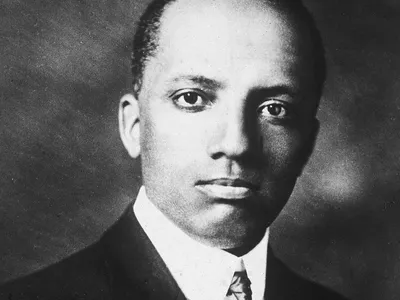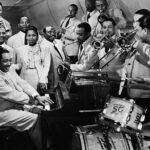Pioneering Early Life
Carter Godwin Woodson was born on December 19, 1875, in New Canton, Virginia, amidst the tumultuous post-Civil War era. Raised in a family of former slaves, Woodson experienced firsthand the struggles and perseverance of the African American community in the United States.
Educational Pursuits and Challenges
Despite facing adversities, Woodson’s passion for education led him to excel academically. Graduating high school at an older age, he embarked on a relentless pursuit of knowledge, eventually earning his bachelor’s and master’s degrees from Berea College and the University of Chicago, respectively. His determination to overcome systemic barriers mirrored his future commitment to advancing African American history.
Championing African American History
Woodson became a trailblazer in the study of African American history, recognizing the glaring absence of Black narratives in academia. In 1915, he founded the Association for the Study of Negro Life and History (now the Association for the Study of African American Life and History) to promote the scholarly exploration of Black history and culture.
Black History Month Origins
Woodson’s enduring legacy lies in his establishment of Negro History Week in 1926, choosing February to coincide with the birthdays of Abraham Lincoln and Frederick Douglass. This dedicated week aimed to highlight the often-overlooked contributions of African Americans to the nation’s history and culture. This week-long celebration evolved into Black History Month, observed annually in February in the United States and several other countries.
Prolific Writing and Scholarship
As an author and historian, Woodson penned numerous groundbreaking works, including “The Mis-Education of the Negro” and “The Negro in Our History.” These seminal texts challenged the prevailing misconceptions about African American culture and history, advocating for a more accurate and inclusive portrayal.
Educational Advocacy and Impact
Woodson’s commitment to education extended beyond academia. He advocated for the inclusion of African American history in school curricula, believing that understanding one’s history was crucial for empowerment and societal progress. His tireless efforts laid the groundwork for the recognition and integration of Black history into educational systems worldwide.
Lasting Legacy and Recognition
Carter G. Woodson’s dedication to elevating the narratives and achievements of African Americans earned him the title “Father of Black History.” His invaluable contributions transformed the landscape of historical scholarship and fostered a deeper appreciation for the rich tapestry of African American heritage.
Commemoration and Global Influence
Today, Black History Month stands as a testament to Woodson’s vision, serving as an annual celebration and remembrance of African American history, culture, and achievements. Its global reach underscores Woodson’s profound impact in raising awareness and promoting a more inclusive understanding of history.
Carter G. Woodson’s enduring legacy continues to inspire generations, emphasizing the importance of recognizing and honoring the diverse contributions of African Americans to the fabric of society. His commitment to education, historical scholarship, and advocacy for inclusivity remains a guiding beacon, perpetuating his profound influence on the world’s understanding of Black history and culture.





